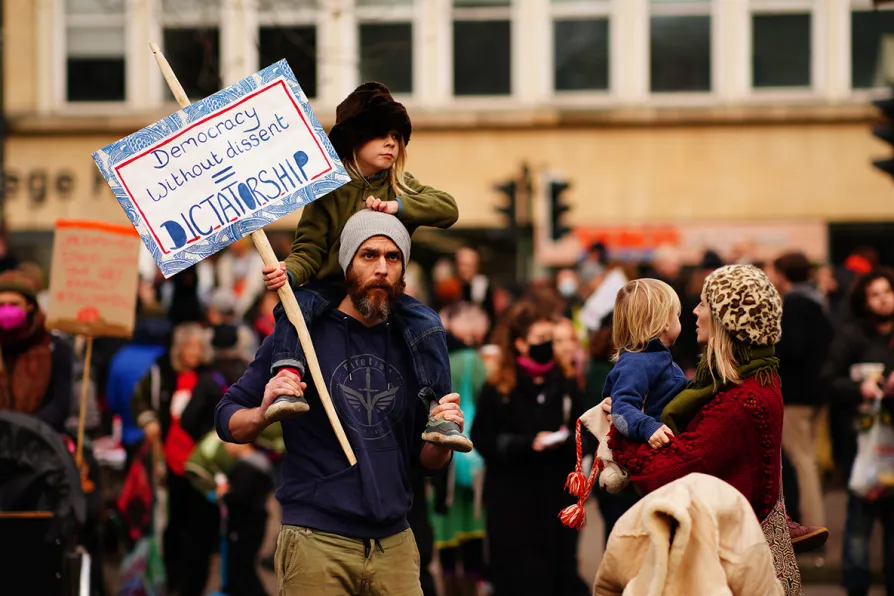
 Demonstrators during a ‘Kill The Bill’ protest against The Police, Crime, Sentencing and Courts Bill in College Green, Bristol
Demonstrators during a ‘Kill The Bill’ protest against The Police, Crime, Sentencing and Courts Bill in College Green, Bristol
HOME Secretary Priti Patel has written to MPs urging them to back her anti-protest laws after they were rejected by peers last month.
The House of Lords inflicted a string of defeats on the Police, Crime Sentencing and Courts Bill, throwing out measures designed to quash tactics used by groups such as Insulate Britain and Extinction Rebellion.
Peers also voted against handing police powers to impose noise restrictions on demonstrations, making it a criminal offence to “lock onto objects” and expanding stop and search powers against people suspected of taking part in “illegal” protests.
But Ms Patel is hoping to overturn those defeats by calling on all 650 MPs to pass the legislation “soon.”
Her desperate bid to save the Bill comes ahead of the legislation returning to the Commons next week for a round of parliamentary ping pong, where legislation passes between the two houses until an agreement is reached.
Ms Patel has also appealed to MPs to reject a Lords amendment that would make misogyny a hate crime.
The Home Office said that its rejection is based on a Law Commission report, which claims that the move would prove “more harmful than helpful” to victims.
Announcing her intention to write to MPs today, the Home Secretary said: “This Bill is vitally important as we overhaul the criminal justice system and make our streets safer.
“It must be passed soon so that we can continue to cut crime, reduce violence and protect women and girls.”
Responding to the letter, shadow home secretary Yvette Cooper said: “Priti Patel is also still trying to criminalise people for protesting noisily or singing in the street, rather than tackling serious crime.
“Too often under the Tories, criminals are getting away with it and victims are being let down.”
Home Office officials said that ministers will also continue seeking to give police powers to deal with “highly disruptive protests.”
Labour’s Lord Hain, who was a prominent figure in the anti-apartheid movement, warned last month that the government’s attempts to crack down on demonstrations were “the biggest threat to the right to dissent and the right to protest in my lifetime.”
The mammoth piece of legislation returns to the Commons next Monday.


















